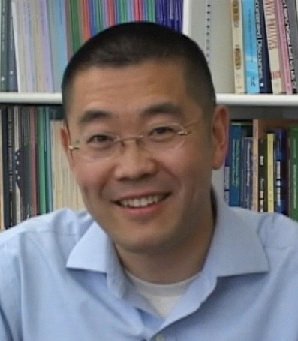APA Faith Matters is a periodic interview of Asian Pacific American (APA) leaders in various religious contexts. It highlights those leaders who are passionate about social justice issues that matter to APA communities and work from within their religious contexts.
 Patrick S. Cheng is the Assistant Professor of Historical and Systematic Theology at the Episcopal Divinity School in Cambridge, Massachusetts. He is a member of the American Academy of Religion, and also writes for the religion and gay voices sections of the Huffington Post. He is one of the few voices that courageously speaks out for a group that continues to be marginalized, particularly in the Christian church.
Patrick S. Cheng is the Assistant Professor of Historical and Systematic Theology at the Episcopal Divinity School in Cambridge, Massachusetts. He is a member of the American Academy of Religion, and also writes for the religion and gay voices sections of the Huffington Post. He is one of the few voices that courageously speaks out for a group that continues to be marginalized, particularly in the Christian church.
What is your religious background?
I was raised in a Roman Catholic household. I was received into the Episcopal Church over thirteen years ago, and I have worked for the Episcopal Church for over a decade both as a lawyer and as a seminary professor. I have served as an ordained minister with the Metropolitan Community Churches, a lesbian, gay, bisexual, transgender, intersex, and queer (LGBTIQ) affirming denomination that is open to all, since 2001.
Is being Asian American a part of or impact your religious perspective/experience, if so, how?
Yes. I am very much interested in the pastoral care of Asian Americans, and especially those who identify as LGBTIQ. I am the coordinator of Queer Asian Spirit, a worldwide group for LGBTIQ people of Asian descent who are interested in religious and spiritual issues. I also work with contextual theologies in my scholarship (that is, theologies written from the perspective of particular identity groups), including Asian American theology and queer theologies.
What social/political issues are you passionate about the most?
As an openly gay Asian American man, I am particularly passionate about issues of racism (including the racism that exists within the predominantly white LGBTIQ community) as well as homophobia and transphobia (including the homophobia and transphobia that exists within the predominantly straight Asian American community). I am also committed to class issues, particularly those that affect recent immigrant populations in the United States.
How does your religion impact or shape your view on those issues?
I believe that — in the same way it played an important role in the civil rights struggles of the the 1960s — the Christian faith continues to have relevance for the liberation of Asian Americans, LGBTIQ people, and other marginalized individuals in our society. For me, the incarnation is an affirmation of the goodness of the human body, and it is a revelation of God’s ultimate solidarity with all who suffer, even to the point of being tortured and executed by the political and religious authorities. However, the resurrection is God’s promise that crucifixion and death is never the last word. I recently published “Radical Love: An Introduction to Queer Theology,” which argues that both Christianity and queer theory address the same fundamental issues — that is, a love so radical that it dissolves boundaries — notwithstanding the general (mis)perception that the two are not compatible.
Do you think the Protestant church as an institution can affect change in social issues? Why or why not?
Yes. I believe that taking scripture seriously — which is a core value for Protestants — leads to a fundamental commitment to social justice and making the world better — and not worse — place for all people, including LGBT people. There are only a handful of verses in the Bible that purportedly refer to same-sex acts (which I believe are actually talking about things like rape and not the same-sex relationships as we understand them today), as opposed to dozens if not hundreds of verses about loving one’s neighbor and especially caring for the least among us. Also, the traditional doctrine of original sin demonstrates that we are ALL subject to self-deception, self-interest, and critique. As such, it encourages us to be constantly vigilant about how God might be calling us to affect change in the world in unexpected ways.
Does ecumenism or interfaith dialogue play a role in your faith perspective on justice issue? How?
Yes. As an Asian American theologian, it is important for me to affirm the East Asian faith traditions of my ancestors, not to mention the traditions of the vast majority of people of Asian descent around the world. Because we are human and not divine, we are all limited in our ability to grasp ultimate reality fully, and understanding the religious, spiritual, and philosophical views of others can be a valuable way of understanding the complexity of that ultimate reality. This openness to interfaith and ecumenical dialogue doesn’t weaken my commitment to the Christian faith, but rather deepens and enriches it.
Patrick S. Cheng is the author of Radical Love: An Introduction to Queer Theology. More information about him can be found at his website or you can follow him on Twitter.
- Excited
- Fascinated
- Amused
- Disgusted
- Sad
- Angry








